Datasheet
Year, pagecount:2013, 3 page(s)
Language:English
Downloads:2
Uploaded:May 03, 2018
Size:499 KB
Institution:
-
Comments:
Attachment:-
Download in PDF:Please log in!
Comments
No comments yet. You can be the first!Most popular documents in this category
Content extract
Source: http://www.doksinet blo gs.lse acuk http://blo gs.lseacuk/po liticsandpo licy/archives/25483 Cameron and Welfare: Questioning the liberal Conservatism project Pete Redford questions David Cameron’s commitment to socially liberal values. Despite his campaigning as a ‘liberal Conservative’, the prime minister has tacked noticeably to the right since becoming leader. His intention to restructure the welfare state underlines this point. When David Cameron became Conservative leader in 2005 he f ocused on modernising the party, breaking f rom the past and shaking the label of the ‘nasty party’. He declared himself a ‘liberal Conservative’, socially as well as economically liberal. Here I question the liberal conservative project in terms of social policy. In opposition to Blair – Cameron the liberal Conservative As the self proclaimed ‘heir-to-Blair’, Cameron set about decontaminating the Tory brand. In his f irst speech as party leader he declared that ‘T
here is such a thing as society’. Liberal Conservatism was to be equated with the creation of a cohesive and tolerant society, an enabling state, a f lourishing civil society, increased levels of individual responsibility and less inequality. Cameron spoke of responsibility, championing a modern compassionate Conservatism. T his social responsibility was to be the ‘essence of liberal Conservatism’. Cameron’s Conservatives were to role f orward the f rontiers society and even committed to Labour’s spending plans. T he new mission of Cameron’s new modern Tory party was to repair Britain’s broken society, not her economy, and protect key public services. In opposition to Brown and the recession – Cameron on the traditional right T he inf amous ‘hug-a-hoodie’ speech f ed the image of the compassionate Conservative. However, by 2007 Cameron stated those were ‘three words I never said’ bef ore going on to say that ‘aggressive hoodies who threaten the rest of us must
be punished’. T his was the beginning of a shif t back to the traditional right and the poll leads Cameron began to maintain f rom late 2007 only served to strengthen this shif t. T he recession opened up an ideological chasm over the nature of the state. Cameron was still expressing support f or the welf are state but this was based on a re-conception of the role of the state. In an attempt to create a distinction between themselves and Labour, they stressed the need f or speedier reductions in the level of debt. T his ref lected the tension within Conservative strategy and policy between a desire to pursue economic prudence and a concern not to be seen to be f ollowing a T hatcherite approach to dismantling key elements of welf are. However, it was clear that the party had drif ted back to the right T he election – re-enter compassionate Conservatism Against many expectations Cameron used the recession to develop the theme of compassionate conservatism. Cameron attempted to
convince the public that the Conservatives were in tune with the needs and aspirations of disadvantaged people declaring that it was the Tories that was most committed to tackling poverty and disadvantage. Consequently, the Conservatives were prepared to sustain a commitment to core aspects of the welf are state. Of course, these are the public services f ocused on all voters and not just the poor and they would all f ace signif icant cuts (except the NHS). T he 2010 General Election manif esto made clear the attack on poverty and inequality. T he promotion of Source: http://www.doksinet equal opportunities, it stated, required ‘a new approach: social responsibility not state control; the Big Society, not big government’. Progressive conservatism would f ix the notion of ‘broken Britain’ with the ‘Big Society’. ‘Broken Britain’ and the ‘Big society’ – the classic right wing moral panic and the ‘progressive’ solution T he sound bite ‘Broken Britain’ and
the broader notion of a ‘broken society’ succeeded in entering wider and popular discourses about the social and moral state of contemporary Britain. Cameron has made the ‘broken society’ theme his own. In so doing, he has prepared the ground f or ref orming the welf are state, acquiring the potential to become a peg f or almost any social policy ref orm. It is a very f lexible notion, able to be deployed as an explanation f or popular social ills. Herein lays the classic Right Wing moral panic. In the hands of the Conservative Party there is a clear argument that the broken society has its roots in ‘broken f amilies’ caught in a ‘dependency culture’. T he institution of the f amily and approaches to f amilies become a key site f or political and policy argument and a target f or policy f ormation. T he idea of the ‘big society’ has been presented as a necessary response to the ‘broken society’, in order to try to reconcile the tension of reducing the size of
the state and maintaining welf are. It was an attempt to develop a narrative to support their complex and contradictory economic/welf are policy. T he Conservative case was that there was little choice but to cut public spending. However the public good and public services could be maintained through looking to non-state providers. T he ‘Big Society’ was meant as the liberal Conservative vehicle that would cure the ills of the broken society. T he notion of broken Britain was in itself the latest embodiment of a long line of classic rightwing moral panics that have continued to distinguish between a ‘deserving’ and ‘undeserving’ poor Cameron’s social policy had become about achieving Conservative ends by so-called progressive and liberal means. Cameron in Coalition – T he Reactionary T he Coalition agreement promised changes would be made to the Jobseeker’s Allowance and welf are to work systems. However, af ter announcing the details of the CSR many began to
criticize the Coalitions social policy as nothing less than an ideologically motivated attack on the state. ‘Austerity’ became a by word f or neo-liberalism, and the ‘big society’ was synonymous with shrinking the state. T hese ref orms f aced opposition f rom a public angry about the condition of the job market and wages. He has also f aced criticism f rom the Liberal Democrats on the social liberal wing of the party who are traditionally supportive of the welf are state, and of course his own backbenches. T he 1922 committee criticised Cameron f or not going f ar enough but the modernizers of the new 301 group believe that it is only through staying on the middle ground that they will be able to gain an overall majority at the next election. Concessions have been made to all these groups in order to appease them and the coalition has become synonymous with U-turns. Cameron became a reactionary attached by a bungee cord to the traditional right, always being pulled back. T he
Future Cameron can’t be blamed too much f or being a reactionary. As leader of a party and PM in a coalition, his overriding f unction is conducting a balancing act to maintain stability. However, in recent weeks Cameron has announced the f uture of Conservative social policy which is clearly on the right and a complete restructuring of the welf are state. T his shif t completely undermines the liberal conservative project T he proposed cuts (historically only half of those proposed are ever achieved) will mean that as a percentage of GDP the UK will spend less on public services than the US and the welf are state will be radically altered. Cameron’s legacy will not be as a liberal Conservative, it will be as the PM who presided over the permanent rolling back of the state and a new welf are consensus. Cameron’s social policy resembles that of Prime Minister on the traditional right rather than that of a liberal Conservative. Source: http://www.doksinet T his is the eighth in
a series of posts by contributors to the recent ‘Conservatives in Coalition Government’ conference organised by the Political Studies Association Specialist Group for the study of Conservatives and Conservatism and the Centre for British Politics at the University of Hull. T he views expressed are those of the author alone and not those of the Political Studies Association or the University of Hull. Note: This article gives the views of the author, and not the position of the British Politics and Policy blog, nor of the London School of Economics. Please read our comments policy before posting About the author Pete Redford – University of Birmingham Pete Redf ord is a f ormer Parliamentary researcher and a f reelance article and speech writer currently undertaking his PhD in Politics and Social Policy at the University of Birmingham. He holds a BA (Hons) British Politics and Legislative Studies and MA Global Political Economy f rom the University of Hull. His research interests
include British ‘aspirational’ politics, social mobility, the ‘underclass’ and traditional Labour Party thought. He tweets @PeteRedf ord You may also be interested in the following posts (automatically generated): 1. Multiculturalism is not a coherent policy that can be abandoned; David Cameron’s speech reveals more continuity with Labour’s ‘British national identity’ project than a radical departure f rom his ‘liberal conservatism’ (50.3) 2. T he EU Ref erendum rebellion has lef t David Cameron with little room to manoeuvre and is picking apart his liberal conservative project (40.3) 3. Cameron’s “Progressive Conservatism” is largely cosmetic and without substance (32) 4. Book Review: T he New Politics: Liberal Conservatism or Same Old Tories? (318)
here is such a thing as society’. Liberal Conservatism was to be equated with the creation of a cohesive and tolerant society, an enabling state, a f lourishing civil society, increased levels of individual responsibility and less inequality. Cameron spoke of responsibility, championing a modern compassionate Conservatism. T his social responsibility was to be the ‘essence of liberal Conservatism’. Cameron’s Conservatives were to role f orward the f rontiers society and even committed to Labour’s spending plans. T he new mission of Cameron’s new modern Tory party was to repair Britain’s broken society, not her economy, and protect key public services. In opposition to Brown and the recession – Cameron on the traditional right T he inf amous ‘hug-a-hoodie’ speech f ed the image of the compassionate Conservative. However, by 2007 Cameron stated those were ‘three words I never said’ bef ore going on to say that ‘aggressive hoodies who threaten the rest of us must
be punished’. T his was the beginning of a shif t back to the traditional right and the poll leads Cameron began to maintain f rom late 2007 only served to strengthen this shif t. T he recession opened up an ideological chasm over the nature of the state. Cameron was still expressing support f or the welf are state but this was based on a re-conception of the role of the state. In an attempt to create a distinction between themselves and Labour, they stressed the need f or speedier reductions in the level of debt. T his ref lected the tension within Conservative strategy and policy between a desire to pursue economic prudence and a concern not to be seen to be f ollowing a T hatcherite approach to dismantling key elements of welf are. However, it was clear that the party had drif ted back to the right T he election – re-enter compassionate Conservatism Against many expectations Cameron used the recession to develop the theme of compassionate conservatism. Cameron attempted to
convince the public that the Conservatives were in tune with the needs and aspirations of disadvantaged people declaring that it was the Tories that was most committed to tackling poverty and disadvantage. Consequently, the Conservatives were prepared to sustain a commitment to core aspects of the welf are state. Of course, these are the public services f ocused on all voters and not just the poor and they would all f ace signif icant cuts (except the NHS). T he 2010 General Election manif esto made clear the attack on poverty and inequality. T he promotion of Source: http://www.doksinet equal opportunities, it stated, required ‘a new approach: social responsibility not state control; the Big Society, not big government’. Progressive conservatism would f ix the notion of ‘broken Britain’ with the ‘Big Society’. ‘Broken Britain’ and the ‘Big society’ – the classic right wing moral panic and the ‘progressive’ solution T he sound bite ‘Broken Britain’ and
the broader notion of a ‘broken society’ succeeded in entering wider and popular discourses about the social and moral state of contemporary Britain. Cameron has made the ‘broken society’ theme his own. In so doing, he has prepared the ground f or ref orming the welf are state, acquiring the potential to become a peg f or almost any social policy ref orm. It is a very f lexible notion, able to be deployed as an explanation f or popular social ills. Herein lays the classic Right Wing moral panic. In the hands of the Conservative Party there is a clear argument that the broken society has its roots in ‘broken f amilies’ caught in a ‘dependency culture’. T he institution of the f amily and approaches to f amilies become a key site f or political and policy argument and a target f or policy f ormation. T he idea of the ‘big society’ has been presented as a necessary response to the ‘broken society’, in order to try to reconcile the tension of reducing the size of
the state and maintaining welf are. It was an attempt to develop a narrative to support their complex and contradictory economic/welf are policy. T he Conservative case was that there was little choice but to cut public spending. However the public good and public services could be maintained through looking to non-state providers. T he ‘Big Society’ was meant as the liberal Conservative vehicle that would cure the ills of the broken society. T he notion of broken Britain was in itself the latest embodiment of a long line of classic rightwing moral panics that have continued to distinguish between a ‘deserving’ and ‘undeserving’ poor Cameron’s social policy had become about achieving Conservative ends by so-called progressive and liberal means. Cameron in Coalition – T he Reactionary T he Coalition agreement promised changes would be made to the Jobseeker’s Allowance and welf are to work systems. However, af ter announcing the details of the CSR many began to
criticize the Coalitions social policy as nothing less than an ideologically motivated attack on the state. ‘Austerity’ became a by word f or neo-liberalism, and the ‘big society’ was synonymous with shrinking the state. T hese ref orms f aced opposition f rom a public angry about the condition of the job market and wages. He has also f aced criticism f rom the Liberal Democrats on the social liberal wing of the party who are traditionally supportive of the welf are state, and of course his own backbenches. T he 1922 committee criticised Cameron f or not going f ar enough but the modernizers of the new 301 group believe that it is only through staying on the middle ground that they will be able to gain an overall majority at the next election. Concessions have been made to all these groups in order to appease them and the coalition has become synonymous with U-turns. Cameron became a reactionary attached by a bungee cord to the traditional right, always being pulled back. T he
Future Cameron can’t be blamed too much f or being a reactionary. As leader of a party and PM in a coalition, his overriding f unction is conducting a balancing act to maintain stability. However, in recent weeks Cameron has announced the f uture of Conservative social policy which is clearly on the right and a complete restructuring of the welf are state. T his shif t completely undermines the liberal conservative project T he proposed cuts (historically only half of those proposed are ever achieved) will mean that as a percentage of GDP the UK will spend less on public services than the US and the welf are state will be radically altered. Cameron’s legacy will not be as a liberal Conservative, it will be as the PM who presided over the permanent rolling back of the state and a new welf are consensus. Cameron’s social policy resembles that of Prime Minister on the traditional right rather than that of a liberal Conservative. Source: http://www.doksinet T his is the eighth in
a series of posts by contributors to the recent ‘Conservatives in Coalition Government’ conference organised by the Political Studies Association Specialist Group for the study of Conservatives and Conservatism and the Centre for British Politics at the University of Hull. T he views expressed are those of the author alone and not those of the Political Studies Association or the University of Hull. Note: This article gives the views of the author, and not the position of the British Politics and Policy blog, nor of the London School of Economics. Please read our comments policy before posting About the author Pete Redford – University of Birmingham Pete Redf ord is a f ormer Parliamentary researcher and a f reelance article and speech writer currently undertaking his PhD in Politics and Social Policy at the University of Birmingham. He holds a BA (Hons) British Politics and Legislative Studies and MA Global Political Economy f rom the University of Hull. His research interests
include British ‘aspirational’ politics, social mobility, the ‘underclass’ and traditional Labour Party thought. He tweets @PeteRedf ord You may also be interested in the following posts (automatically generated): 1. Multiculturalism is not a coherent policy that can be abandoned; David Cameron’s speech reveals more continuity with Labour’s ‘British national identity’ project than a radical departure f rom his ‘liberal conservatism’ (50.3) 2. T he EU Ref erendum rebellion has lef t David Cameron with little room to manoeuvre and is picking apart his liberal conservative project (40.3) 3. Cameron’s “Progressive Conservatism” is largely cosmetic and without substance (32) 4. Book Review: T he New Politics: Liberal Conservatism or Same Old Tories? (318)
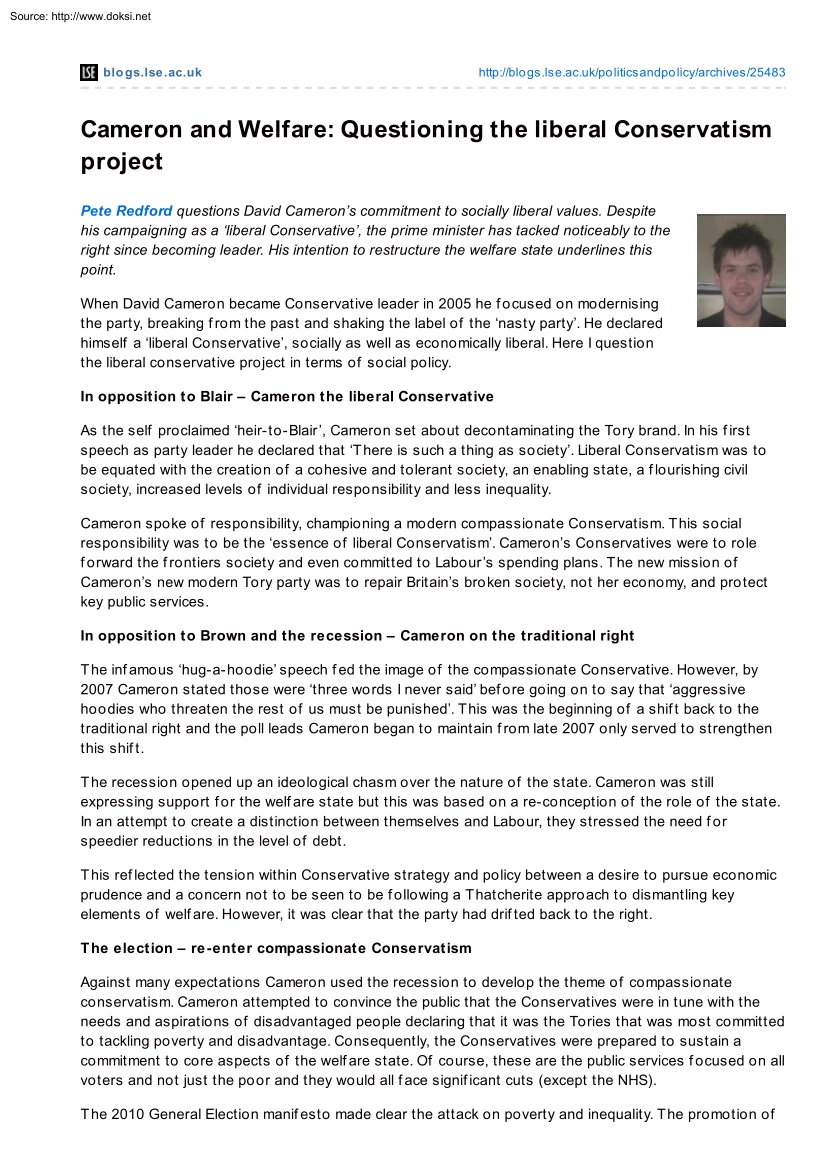
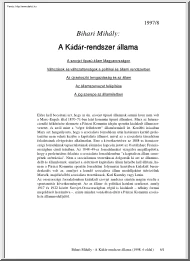
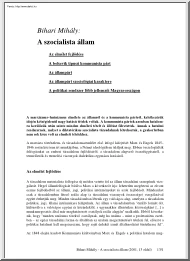
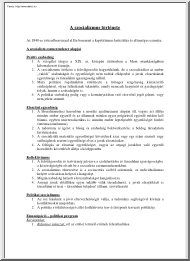
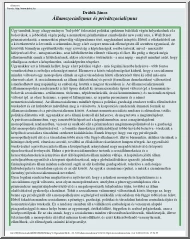
 Just like you draw up a plan when you’re going to war, building a house, or even going on vacation, you need to draw up a plan for your business. This tutorial will help you to clearly see where you are and make it possible to understand where you’re going.
Just like you draw up a plan when you’re going to war, building a house, or even going on vacation, you need to draw up a plan for your business. This tutorial will help you to clearly see where you are and make it possible to understand where you’re going.